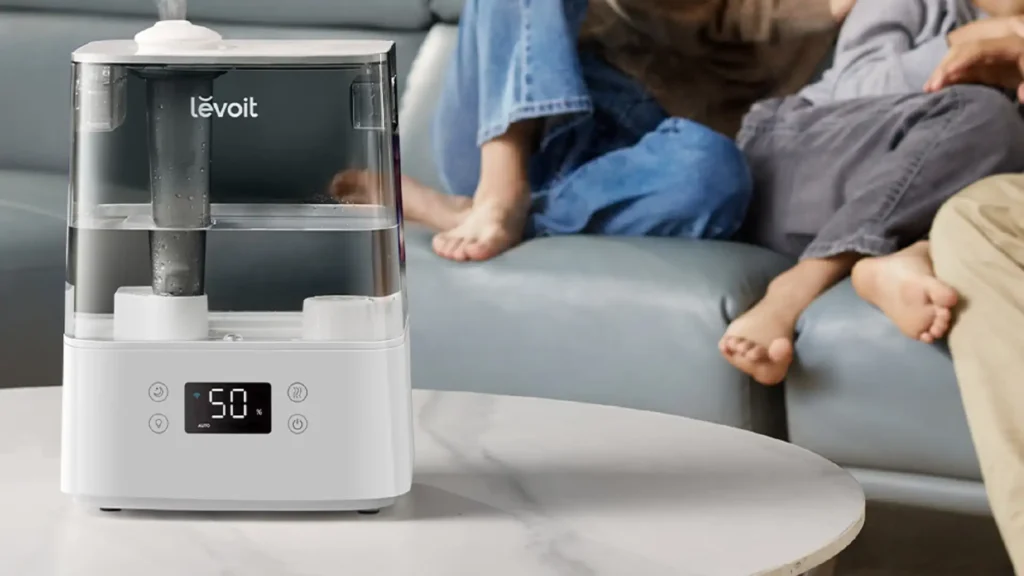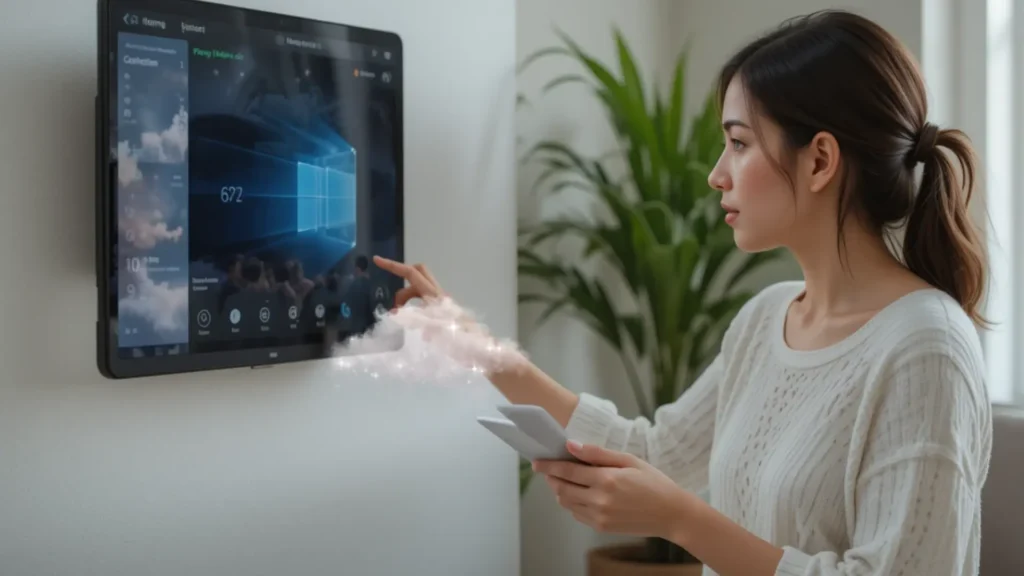Smart home devices track you. They know when you’re home, what you say, and what you do. Most brands don’t hide it. But Apple’s HomeKit claims to do things differently.
Is that real privacy—or just smart marketing? Let’s find out.
Most people don’t read privacy policies. But smart homes can record your voice, watch your routines, and send that data to companies. Some share it with advertisers. Some get hacked.
You need to know which brands respect your data. Because your living room shouldn’t be a data mine. And HomeKit is one of the only systems that says no to surveillance by default.
What Makes HomeKit Stand Out?
Apple doesn’t make money by selling your habits. It doesn’t run an ad business. That changes everything about how it treats your data. Privacy isn’t an extra feature—it’s built into how HomeKit works.
HomeKit is designed to collect less, store less, and share nothing without permission. It doesn’t assume you want to be tracked. It doesn’t try to profit from your behavior. That design choice is rare in the smart home industry.
Most smart platforms prioritize convenience and scale. HomeKit prioritizes control and safety. That’s the big difference—and it affects how every part of the system behaves.
Here’s what that means for your home—and why it matters for your privacy.
End-to-End Encryption Built In
Encryption isn’t optional in HomeKit. It’s standard. That includes everything from camera feeds to door lock access to Siri voice requests.
When your data travels from a device to your iPhone or iCloud, it’s locked down. No one can read it—not hackers, not internet providers, not even Apple. Most companies can peek inside your files. Apple can’t.
HomeKit Secure Video takes this even further. The video is encrypted before it leaves your home. That means it’s already private before it hits the cloud.
This protects your footage from leaks and surveillance. It also gives you peace of mind that your indoor life won’t end up online.
Local Control Whenever Possible
With HomeKit, your smart home doesn’t always need the internet. Many commands happen directly between your iPhone, Apple TV, or HomePod and your devices.
That’s a big deal. It reduces the chance of data interception. It also keeps your routines running smoothly, even during internet outages.
For example, turning on lights, unlocking doors, or adjusting thermostats happens on your local network. Nothing needs to go through a distant server.
Compare that to Alexa or Google Home, where commands often go to their servers first—even if you’re standing in the same room as the device.
Local control also makes your smart home faster. You tap a button, and the action happens instantly. No delay, no lag, and no third party in the middle.
This approach reduces your exposure. Fewer trips to the cloud mean fewer chances for your data to leak or be stolen.
Minimal Data Collection by Design
Apple doesn’t collect what it doesn’t need. If a feature works without logging your data, that’s how it’s built.
For example, when you use Siri through HomeKit, your requests can be processed on your iPhone. No recording, no storage, no ID tied to your voice. If the request does go to Apple’s servers, it’s stripped of your identity.
Apple also doesn’t use your HomeKit activity to build a profile. It doesn’t log your light schedule, motion sensor activity, or door lock usage.
That’s different from other platforms, where every interaction becomes a data point. With HomeKit, your routines stay private.
Strict Device Certification
HomeKit doesn’t work with every smart device on the market. That’s on purpose. Apple requires third-party devices to meet its security and privacy standards.
To earn HomeKit certification, accessory makers must follow rules about encryption, data handling, and firmware updates. If they don’t comply, they can’t be part of the HomeKit ecosystem.
That means your HomeKit devices follow Apple’s privacy-first model—not the manufacturer’s shortcut. You’re not trusting random companies with access to your home.
You’re trusting a system that enforces security from the ground up.
Secure Communication With Your Devices
When your iPhone sends a command to a HomeKit light or lock, that communication is encrypted. It can’t be intercepted. It can’t be spoofed.
Each HomeKit device has a unique identity that is verified before it can talk to your network. That reduces the risk of fake devices getting access to your home.
This authentication system also keeps rogue apps from hijacking your commands or spying on your usage. Only trusted apps with permission can talk to your HomeKit devices.
Limited Cloud Dependency Means Lower Risk
Most smart homes rely heavily on the cloud. If the company gets hacked or the cloud service goes down, users lose control—or worse, get exposed.
HomeKit avoids this problem. Many of its functions work without needing constant contact with Apple’s servers. When the cloud is used—like for remote access or iCloud video—it’s protected with encryption and two-factor authentication.
And because Apple doesn’t store most of your smart home data, there’s less to steal in the first place.
Privacy Is the Default
This might be the most important point: HomeKit starts private. You don’t need to hunt for settings or disable tracking after the fact.
Apple doesn’t force you to say no to surveillance. It builds a system where surveillance isn’t the starting point.
This changes the entire experience. You’re not reacting to privacy problems—you’re starting with protection. That flips the script.
And it’s what truly sets HomeKit apart.
Bottom of Form
HomeKit Secure Video: Private Cameras That Stay Private
Smart cameras usually upload footage to the cloud. That’s where leaks happen. HomeKit Secure Video stores your footage in iCloud—but it’s end-to-end encrypted.
Only you and people you approve can see it. Apple can’t. Not law enforcement. Not hackers using brute-force methods.
And the video analysis happens on your device, not on Apple’s servers.
Many devices use your home or phone’s ID to track your actions. HomeKit doesn’t assign a permanent ID to your activity. Apple rotates identifiers to stop long-term tracking.
It also blocks third-party apps from collecting your behavior by default. You control what apps know—and what they don’t.
Other platforms start tracking unless you dig into the settings. HomeKit does the opposite. Most data sharing is turned off unless you manually enable it.
That means your system starts in a safer state. You don’t need to find hidden switches to protect yourself. The default is privacy.
Many smart homes rely on third-party devices. That’s where data leaks happen. But HomeKit requires strict certification for accessories.
Manufacturers have to meet Apple’s privacy standards. If they don’t, they can’t be part of HomeKit. That limits choices—but it protects you.
Siri Requests Are Not Stored by Default
When you talk to Siri, your voice is processed on your device if possible. It doesn’t go to Apple’s servers unless needed. And when it does, Apple doesn’t attach it to your identity.
You can also delete any request history anytime. Or turn off voice logging completely. This is different from Alexa or Google, which keep more of your data by default.
Apple doesn’t build marketing profiles based on your smart home use. Your behavior stays yours. That’s because Apple makes money from hardware—not your attention.
Other smart platforms serve ads. Apple does not. That means there’s no reason for them to sell your habits.
Everything HomeKit does is visible. You can see what each device has access to. You can block cameras, microphones, and sensors individually.
There’s no buried menu. No long-winded policy you need to decode. Just clear switches you control with a tap.
When you add family members, you don’t risk sharing your private data. HomeKit lets you manage who sees cameras, who controls devices, and who has admin rights.
There’s no guessing. No chance your child can accidentally see your security footage. You decide everything—per person, per device.
HomeKit requires two-factor authentication for your Apple ID. That means hackers can’t break into your smart home without also having your device or trusted login.
Many smart home systems don’t enforce this. Apple does. It’s not optional—and that’s good for your security.
Apple pushes updates to fix problems fast. You don’t need to wait months for a patch. Many HomeKit issues are resolved before they become public threats.
Your devices get safer over time—not more vulnerable. That’s a promise not all brands deliver.
If a HomeKit app collects data, Apple makes it disclose that up front. You can see what’s being collected before you download.
There are no surprises. And if an app misuses your data, Apple can remove it.
With HomeKit, you’re never locked in. You can disable Siri. You can remove devices. You can turn off HomeKit entirely.
Apple won’t stop you. You won’t lose features for protecting your privacy. That’s rare in tech ecosystems.
What About HomeKit Weaknesses?
No system is perfect. HomeKit still depends on your setup. If you use outdated accessories or weak passwords, your risk increases.
Also, not all smart brands support HomeKit. You may have fewer device choices. But what you lose in variety, you gain in control.
Most smart systems are free to use. That’s because your data pays the bill. Companies that make money from ads have no reason to stop tracking you.
Apple doesn’t need to sell your behavior. That changes the rules. That’s why HomeKit can afford to say no to tracking.
Yes. HomeKit needs an iPhone, iPad, or HomePod to work. If you don’t own any Apple hardware, you can’t use it.
That’s a trade-off. But if privacy is your goal, the price may be worth it. You’re buying more than a device—you’re buying control.
Should you trust HomeKit?
Here’s the truth:
HomeKit doesn’t spy on you. It keeps your footage private. It limits tracking. It lets you control what data flows out—and what stays in.
That doesn’t mean it’s bulletproof. No system is. But it’s one of the only smart home platforms built with privacy at the core, not as an afterthought.
Your home is yours. So is your data. You shouldn’t have to trade privacy for comfort. And with HomeKit, you don’t have to.
It won’t record your voice unless you ask. It won’t upload camera footage unless you approve. It won’t build profiles or serve ads.
If you want a smart home that respects your space, HomeKit is a solid choice.
No gimmicks. No spying. Just privacy you control.




